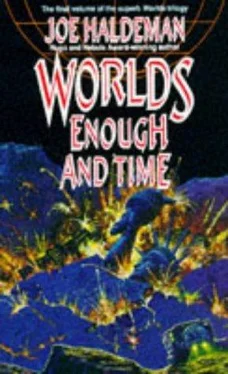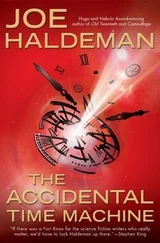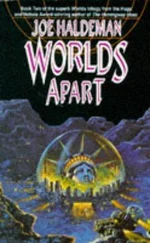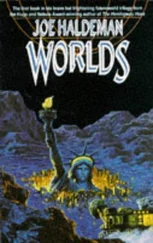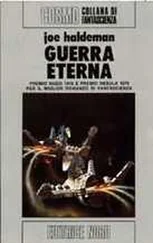Not that I have any room to criticize. When we were washing up after finishing the template, I asked Robert whether he would like to have actual sex sometime. He turned beet red in various odd places (I’ve never seen a naked man blush before) and I backpedaled fast, saying I knew I was out of line, I didn’t mean to put him in an embarrassing position, but my mouth gets ahead of my brain sometimes.
His reaction was interesting, and what happened afterward was very interesting. He said he was pretty sure he couldn’t have sex with a woman, but he did want to be intimate with me, without having the machine between us. Talking and touching. It was night at the ag level, so we took an air mattress down to the flower beds and lay there holding each other, whispering. At first he held me so tightly I had difficulty breathing, but he got over that phase, and we talked, trading private memories of joy and sadness the way you sometimes will when you know a person is there for you totally. We stroked and rubbed, but I stayed away from his sex, figuring he would signal me if he wanted that, and he stayed away from mine, perhaps to avoid sending the wrong message. I could have used it.
Daniel was startled, later, when I woke him up with my mouth and then ravaged him.
PRIME
They had to make a decision about John. Nanosurgery was just a memory still, even though the information part of it might be reclaimed in a week or a year or a decade. But there was plain neurosurgery, microsurgery, and ’Home had three doctors who were willing to attempt the tricky cleaning and patching that might bring John’s brain back to normal function, or at least close.
The Triage Council notified John’s family that the surgery should be done now, in the last year before Epsilon. It was a recommendation, not an order, but their argument was strong. John would never be able to land on Epsilon, which is where most of the medical facilities would be in the future, and in any case his operation would have relatively low priority in what they expected to be a heavily overworked couple of decades.
They couldn’t assign a percentage probability to his chances of surviving the operation until he had been out of crypto long enough for the fluids in his body to regain normal electrolyte balance. He might not even survive the shock of thawing out, of course, but that particular risk was not going to change in the near future.
Only Daniel was against it. He didn’t like the idea of the nature of their family life being dictated by some doctors’ schedules—by some doctors’ advance perceptions of their schedules, that could be wildly inaccurate. But Evy had the greatest stake in the question, since she was the only one planning to stay aboard ’Home after orbit, and she wanted to give the surgeons the go-ahead.
O’Hara was on the fence, nervous about okaying a life-threatening procedure, wanting the best for John, and selfishly wanting the whole mess to be settled one way or the other. How many husbands did she actually have—one, two, or one-and-a-fraction?
All three of them did agree that John’s attitude had been unambiguous. He would rather die than hang on alive but bound in the straitjacket of dumb paralysis.
O’Hara finally cast her vote with Evy, and they brought John out. At first it looked bad. His eyes opened, but he made no sign of recognizing his family, or anybody. The third morning, though, his eyes tracked O’Hara. She explained the situation to him and he nodded.
The operation took nine hours. Evy was not a surgical nurse, but she was allowed to attend as a supernumerary fetch-and-carry. She told O’Hara about an odd minute when she had to crouch under the table and hold a urinal for the senior surgeon, young enough to be her granddaughter, to straddle. It was scary: that child is trying to concentrate on brain surgery, my husband’s life literally in her hands, and at the same time convince her urogenital sphincter to overcome a lifetime of training and habit. But brain surgeons are used to long operations, even if Evy was not.
They had been warned that the results of the operation might not be apparent for some time, so nobody was alarmed when John didn’t show any immediate improvement. Within a week he had his yes-no-shit vocabulary back, and could also count up to ten. He was able to leave the hospital for his quarter-gee sickroom.
But he stayed at that level of verbal ability. After a month, the doctors conducted a series of tests and had to admit that the operation probably wasn’t going to make any difference. His brain was getting plenty of oxygen. It just wasn’t doing any good.
7. BE ALL THAT YOU CAN BE
Age 55.43 [11 Theresa 428]—Actually, this starts about ten days ago. Too busy to write, molding young minds, perverting the will of die people, whatever.
They’ve put me in charge of the Induction section—Aptitude Induction Through Voluntary Hypnotic Immersion—on the reasonable basis that nobody else wants to touch it. Also, I was in charge of it back in Earth orbit, and actually went through the first half of the procedure myself, in the process of creating Prime.
That was 26 years ago, though, by my personal reckoning, and 66 years “real” time, or 147 Epsilon years. Most of half my lifetime, anyhow. I recall the process as sort of a vague bad dream; the administration of it, a waking nightmare.
But that’s not the problem now. There are a lot fewer people and I’m a better administrator than I was then. One problem is that more than three quarters of the Induction files are gone. Nine tenths were destroyed by New New’s information sabotage, and only a few replaced. Another problem is a lack of motivation.
Which is putting it mildly. It’s more like a consensus of rebellion. Induction is most effective on the young, and of course the best candidates are people who haven’t yet demonstrated a lot of talent in any useful field. So when you offer Induction to them, they get defensive. “I don’t want to be a welder, I want to be Myself!” Even though the only skill so far exhibited by Myself has been turning rations into compost.
One person who was not a problem, to my considerable relief, was Sandra’s husband Jakob. He doesn’t have any skills particularly useful for a primary settler—perfect pitch being irrelevant for the time being—so I showed him a list and he said plumbing looked interesting. He finished breakfast and kissed us both goodbye and went down to get reamed by the AI monster for two weeks.
Then there’s the problem of the Nowers, who actually are just compost machines. You could probably take one by the hand and wander along off to the machine, and he or she would smilingly obey, since everything is just now happening and is an expression of God’s will. But even those lumps have civil rights. The psychometricos call it “profound volitional incompetence,” which I think is a profound euphemism for lump. If they went through Induction, they might be able to rejoin the human race. But it’s more important, at least to some people, that they be allowed to worship in the quagmire of their choice.
Kamal Muhammed, the opinion engineer who helped us convince people to accept cryptobiosis for the common good, didn’t himself go into the can. He’s been in retirement for a long time, aged 105 in old years (233, Epsilon), but he still helps out now and then. I went to him for advice.
He must have one of the oddest-looking rooms in ’Home. For decades he has immersed himself in oriental arts and crafts. There are about fifty potted dwarf trees, bonsai, in a miniature forest that takes up all of the floor space except for narrow paths. The bunk where Muhammed sat was littered with worn paper folded and refolded into origami shapes. Set in the wall where most people would have a console and cube, he had an open square painted solid white. A vase with four flowers stood artfully offcenter, balanced in the space by a smooth stone, the size of a fist, mottled pink and gray.
Читать дальше
